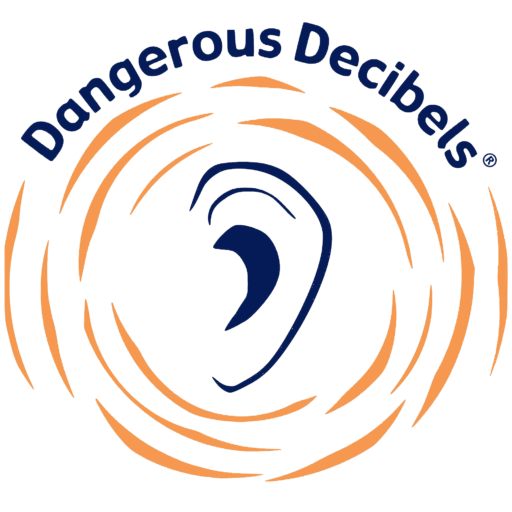Overcoming Nervousness
Know your audience. If you are a high school student, 4th graders are going to already think you are the best. They will be thrilled that you are in their classroom and there will be lots of friendly faces greeting you. If you are an adult/teacher, kids respect adults, and they won’t be expecting you to be nervous even if this is your first time giving the Dangerous Decibels program.
Talk about what you know. By learning the Dangerous Decibels program thoroughly and completing this online training, you will reduce your nervousness because you understand what you are talking about.
Concentrate on your messages. Focus on the task at hand and try not to think about other things (like how nervous you might be). Practice the beginning repeatedly. If you practice the beginning, you will be very confident at the outset. Get the students excited about the Dangerous Decibels program right from the start and they won’t be focused on you as a speaker. And you will be focused on them rather than yourself.
Relax your body. A speaker may feel like their voice is tight and shaky and this is because your vocal muscles are overly tightened. If you focus on relaxing your body and think about something else, it will go away once you start talking more. Many people in the audience don’t hear what you might hear in your own voice, so just dismiss it and try to focus on the message.
Visualization. Take a minute to imagine yourself speaking confidently and free of anxiety. Athletes often use visualization to enhance their competitiveness, you can do the same to enhance your public speaking comfort.
Move/Laugh. You don’t have to stand in one spot and be rigid. Often walking around, being more casual with the audience will help. Laughing is a great way to loosen body and vocal muscle tension. So, when you are introducing yourself at the beginning, move around, perhaps share something funny about yourself.
Rack up more experience. The more often you speak in front of groups or deliver the Dangerous Decibels program, the less anxiety and nervousness you will have. Soon, you won’t even be able to imagine that you might have been nervous at the start.
Pair up in a Team. Find another Dangerous Decibels educator and deliver the program as team.
